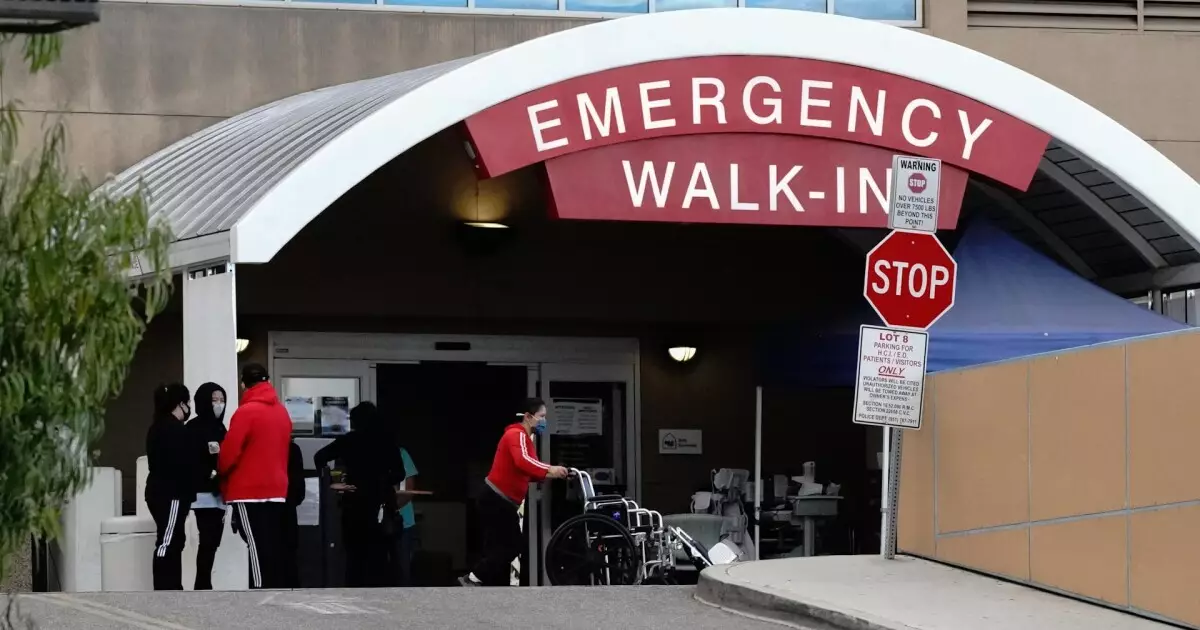The economic situation in the three West Coast states—California, Oregon, and Washington—is teetering on a precipice as they grapple with drastically reduced revenue projections for fiscal 2026. What was once a season filled with optimistic budget dialogues has devolved into a race against time as these states face unprecedented fiscal shortfalls. As a result of the so-called “Trump slump,” these states now find themselves reeling from a series of decisions and federal policies that have effectively siphoned off substantial revenue. From a surging surplus to staggering deficits, the impact of economic policies cannot be understated, revealing the volatile relationship between federal strategies and state finance.
The Emotional Toll of Budget Cuts
In this budget season, the emotional ramifications for both state leaders and constituents are palpable. Democratic leaders have resorted to blaming former President Trump for what they term the “Trump slump,” a phrase that encapsulates the drastic revenue declines spawned by tariffs and immigration enforcement. Governor Gavin Newsom of California brought attention to a projected leap from a $363 million surplus in January to a $12 billion deficit—a jump that is not just a numerical blip but a signal of worsening economic realities. As budget proposals roll out, the adverse ripple effects on public programs cannot be ignored. Choices once made in the name of growth now require painful compromises, resulting in cuts to education, infrastructure, and essential services. This painfully showcases the human side of fiscal policy, where real lives are profoundly impacted by legislative decisions beyond their control.
The Trend of Fiscal Conservatism
A cautious approach has swiftly become the hallmark of financial planning in these states. With the economic climate as unpredictable as ever, major projects are being shelved, and revenue projections are being tempered. Washington’s Governor Bob Ferguson secured a $78 billion budget that marries revenue enhancements with agency cuts, and his approach embodies a trend towards fiscal conservatism. The inclusion of a gas tax increase signals a willingness to balance immediate needs against the overarching issue of sustainability. It establishes a troubling precedent: when financial exigencies arise, lower-income citizens invariably bear the brunt of new tax measures. Such balance may garner political support but at what cost?
The Federal-State Funding Chasm
A critical area of concern highlighted by analysts is the fissure opened by federal funding cuts, primarily driven by legislative changes at the federal level. Analysts from S&P Global Ratings emphasize that as federal contributions make up a significant portion of state revenues—often 30% to 60%—the ramifications of reduced funding, particularly in healthcare programs like Medicaid, are catastrophic. States like California, Oregon, and Washington stand to lose billions in revenues should congressional measures strip Medicaid funding or force states to implement costly cuts. This looming financial calamity showcases the fragile interdependence between state and federal governments, underscoring an urgent need for more thoughtful policy discourse that recognizes this precarious balance.
The Impact on Social Safety Nets
The repercussions extend beyond simple revenue loss; they place immense pressure on the already stretched social safety nets in place. Newsom’s proposal to freeze Medi-Cal expansion and charge enrollees highlights the impending crisis within California’s healthcare service, targeting vulnerable populations who most need assistance. When state budgets are stretched thin, it is invariably the low-income constituents who face the brunt of these reductions. If lawmakers favor fiscal prudence over moral obligation, this trend threatens to widen the socioeconomic divide and erode essential services for those who depend on them. Ultimately, these choices beg the question—where do we draw the line in the battle between financial sustainability and social responsibility?
Legislative Struggles and the Suspension of Progress
Recent legislative sessions revealed the harsh reality that many progressive initiatives are being sidelined in favor of budgetary cuts. In a frantic effort to manage resources, California’s assembly leaders have acknowledged the need to eliminate numerous bills that would normally address pressing state issues. This rapid reduction of bills—some intending to expand healthcare services or enhance community support—demonstrates the increasing difficulty of navigating the aggressive fiscal landscape. The “suspense file” process allows legislators to cut necessary programs that if funded, could have positively impacted lower income families and working-class individuals.
The stark contrasts emerging from within these budget discussions reflect a more troubling trend: rather than expanding services to elevate the community, we are witnessing a constriction that limits support and neglects the very people these initiatives are meant to assist. The solutions offered seem alarmingly weighted towards short-term fixes at the expense of long-term benefits, a cycle that perpetuates ongoing struggles instead of offering the necessary respite. Wouldn’t it be more beneficial to invest in societal growth instead of slashing the very foundations upon which our citizens rely?
Ultimately, the situation in California, Oregon, and Washington demands a reevaluation of priorities. The direction these states choose now will not only influence their financial landscape for years to come but will serve as a stark reminder of the consequences of decisions made—both federally and locally—that reverberate through the lives of everyday citizens.

